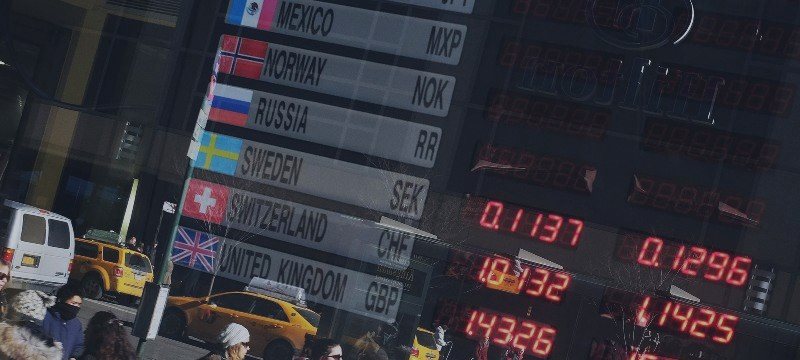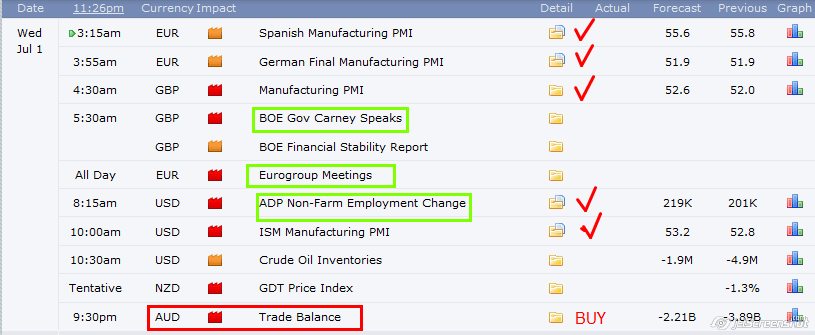
TOP NEWS : Greece No Hurdle for Bond Sellers Lured by Draghi’s Euro Bounty
1 July 2015, 06:15
0
92
Greece’s relationship with the euro may be under strain, but the currency is finding new love in Asia and Latin America.
In the first half of 2015, companies from Sinopec Group to Petroleos Mexicanos as well as the Mexican government sold bonds denominated in euros rather than dollars, saving more than 100 basis points in yields. More issuers will join their ranks in the next six months as the lure of Mario Draghi’s $1.1 trillion stimulus trumps the fallout from the Greek turmoil, according to investors including Union Investment Privatfonds GmbH and AllianceBernstein LP.
Emerging-market borrowers are looking for ways to continue raising money cheaply as the Federal Reserve prepares to end the era of low-cost dollar funding with an interest-rate increase some time this year. They are increasingly turning to the euro zone, where slowing inflation and growth as well as an increasing supply of the currency are depressing yields, according to Dmitri Barinov of Union Investment.
“We will see more of it from September on,” Barinov, who oversees $2.6 billion of emerging-market bonds at Union Investment in Frankfurt, said in an e-mail on Tuesday. “The very low levels of yields and the ongoing quantitative-easing program in Europe make refinancing way cheaper than in U.S. dollars.”
Sales of dollar-denominated securities by governments and companies in Latin America have halved this year, while those of euro bonds surged 40 percent, according to data compiled by Bloomberg. In Asia, dollar offerings rose 6 percent, compared with a doubling in sales of euro-denominated notes.
Chinese Lead
Chinese borrowers accounted for more than 90 percent of the 7.3 billion euros ($8.1 billion) of bonds issued in Asia in the six months through June. That included the sale of three-year notes by Sinopec in April at 0.5 percent. Similar-maturity dollar notes from the company yielded 1.72 percent on Tuesday.
In Latin America, Mexico made up three-quarters of euro-bond sales, the data showed. The world’s first 100-year state debt denominated in the shared currency came from the Mexican government on April 8. The nation sold the notes at a yield of 4.2 percent, 109 basis points below dollar notes of comparable maturity.
As talks between Greece and its creditors over extending the nation’s bailout program hurtled toward failure this year, selling euro bonds became harder for the economies of eastern Europe, given their dependence on the euro zone for trade and capital.
It is “more problematic for central and eastern Europe as they are in the contamination zone of the Greece fallout,” Michael Ganske, the head of emerging markets at Rogge Global Partners in London, said by e-mail on Tuesday. “Issuers and investors have to see how Greece is developing, and the latter can be ugly, implying that it will be difficult for risk assets to be issued during this phase.”
The run-up to a July 5 referendum on austerity measures has been described by European leaders as a vote on whether the Greeks want to stay in the euro or not. Still, the crisis won’t have a lasting impact on the pace of euro-bond issuances, according to Marco Santamaria, who helps oversee $27 billion of emerging-market debt at AllianceBernstein in New York.
“The European Central Bank’s quantitative-easing program has introduced a lot of euro liquidity which needs to be invested,” he said. “The sales may pick up once the dust settles.”
In the first half of 2015, companies from Sinopec Group to Petroleos Mexicanos as well as the Mexican government sold bonds denominated in euros rather than dollars, saving more than 100 basis points in yields. More issuers will join their ranks in the next six months as the lure of Mario Draghi’s $1.1 trillion stimulus trumps the fallout from the Greek turmoil, according to investors including Union Investment Privatfonds GmbH and AllianceBernstein LP.
Emerging-market borrowers are looking for ways to continue raising money cheaply as the Federal Reserve prepares to end the era of low-cost dollar funding with an interest-rate increase some time this year. They are increasingly turning to the euro zone, where slowing inflation and growth as well as an increasing supply of the currency are depressing yields, according to Dmitri Barinov of Union Investment.
“We will see more of it from September on,” Barinov, who oversees $2.6 billion of emerging-market bonds at Union Investment in Frankfurt, said in an e-mail on Tuesday. “The very low levels of yields and the ongoing quantitative-easing program in Europe make refinancing way cheaper than in U.S. dollars.”
Sales of dollar-denominated securities by governments and companies in Latin America have halved this year, while those of euro bonds surged 40 percent, according to data compiled by Bloomberg. In Asia, dollar offerings rose 6 percent, compared with a doubling in sales of euro-denominated notes.
Chinese Lead
Chinese borrowers accounted for more than 90 percent of the 7.3 billion euros ($8.1 billion) of bonds issued in Asia in the six months through June. That included the sale of three-year notes by Sinopec in April at 0.5 percent. Similar-maturity dollar notes from the company yielded 1.72 percent on Tuesday.
In Latin America, Mexico made up three-quarters of euro-bond sales, the data showed. The world’s first 100-year state debt denominated in the shared currency came from the Mexican government on April 8. The nation sold the notes at a yield of 4.2 percent, 109 basis points below dollar notes of comparable maturity.
As talks between Greece and its creditors over extending the nation’s bailout program hurtled toward failure this year, selling euro bonds became harder for the economies of eastern Europe, given their dependence on the euro zone for trade and capital.
Contamination Zone

https://www.mql5.com/en/signals/111434
Deals in the region fell by more than 60 percent in the first half after a brisk first quarter that saw a slew of government sales, including a 3.1 billion-euro offering by Bulgaria.
It is “more problematic for central and eastern Europe as they are in the contamination zone of the Greece fallout,” Michael Ganske, the head of emerging markets at Rogge Global Partners in London, said by e-mail on Tuesday. “Issuers and investors have to see how Greece is developing, and the latter can be ugly, implying that it will be difficult for risk assets to be issued during this phase.”
The run-up to a July 5 referendum on austerity measures has been described by European leaders as a vote on whether the Greeks want to stay in the euro or not. Still, the crisis won’t have a lasting impact on the pace of euro-bond issuances, according to Marco Santamaria, who helps oversee $27 billion of emerging-market debt at AllianceBernstein in New York.
“The European Central Bank’s quantitative-easing program has introduced a lot of euro liquidity which needs to be invested,” he said. “The sales may pick up once the dust settles.”
See More News n Signals https://www.mql5.com/en/signals/111434


